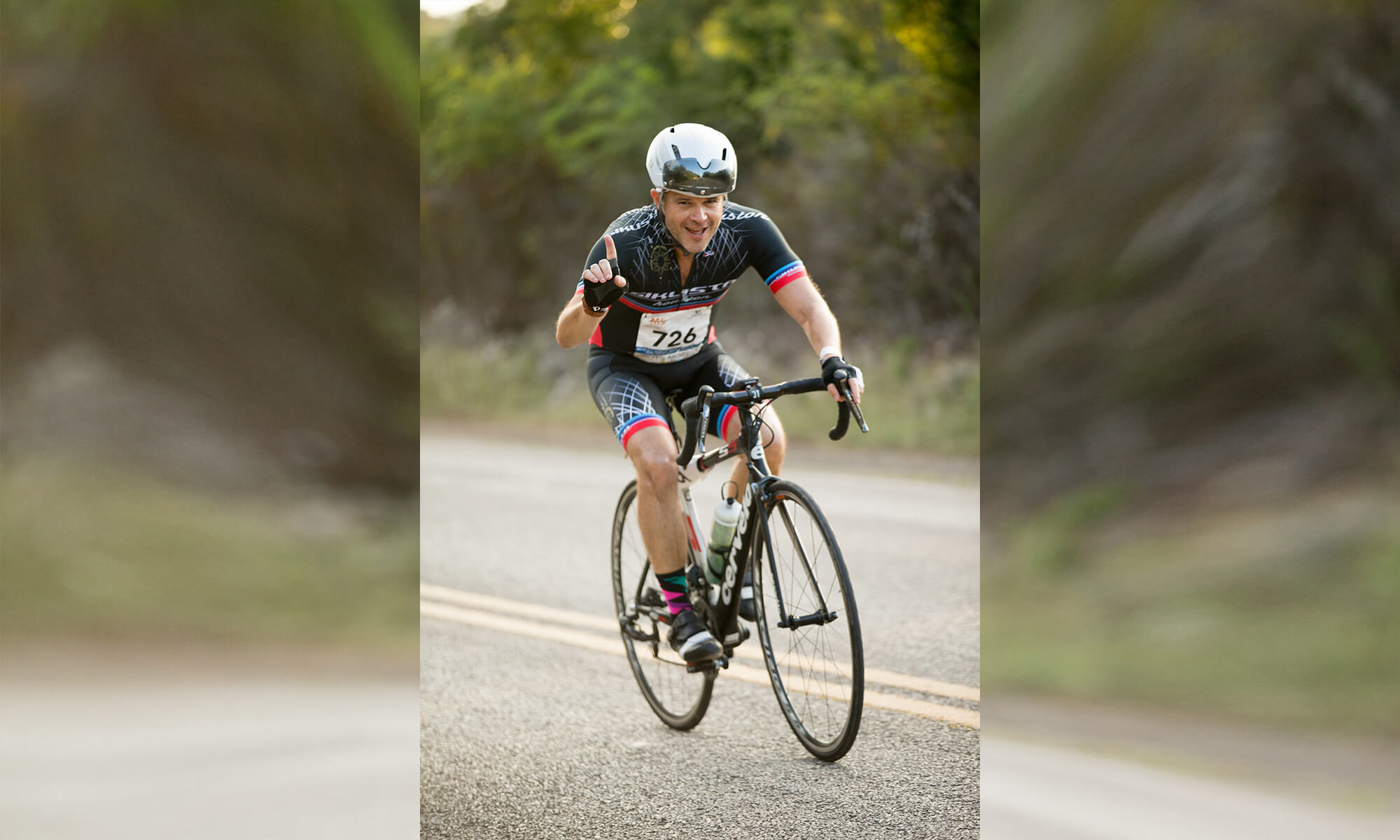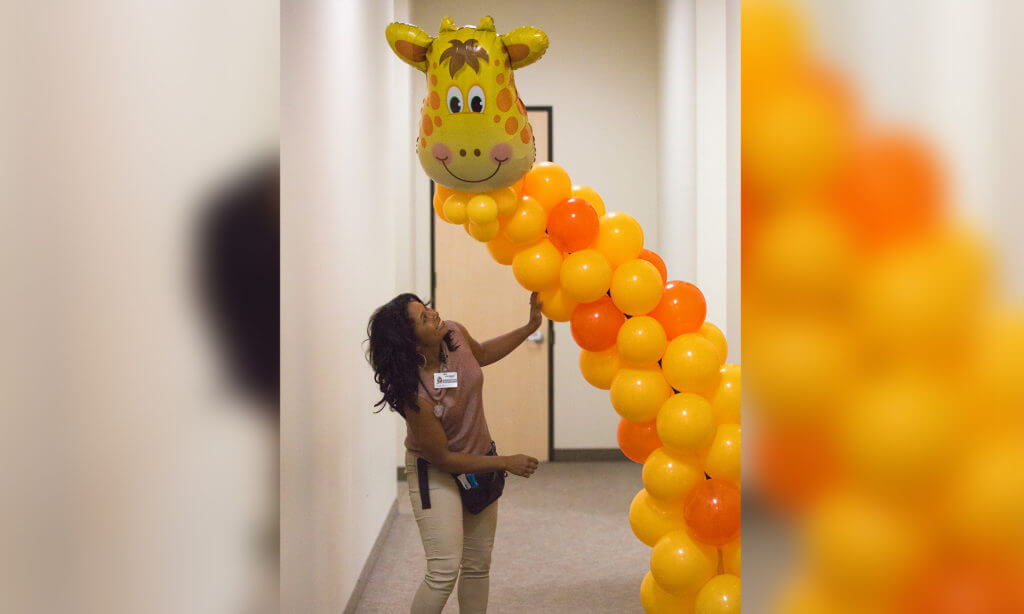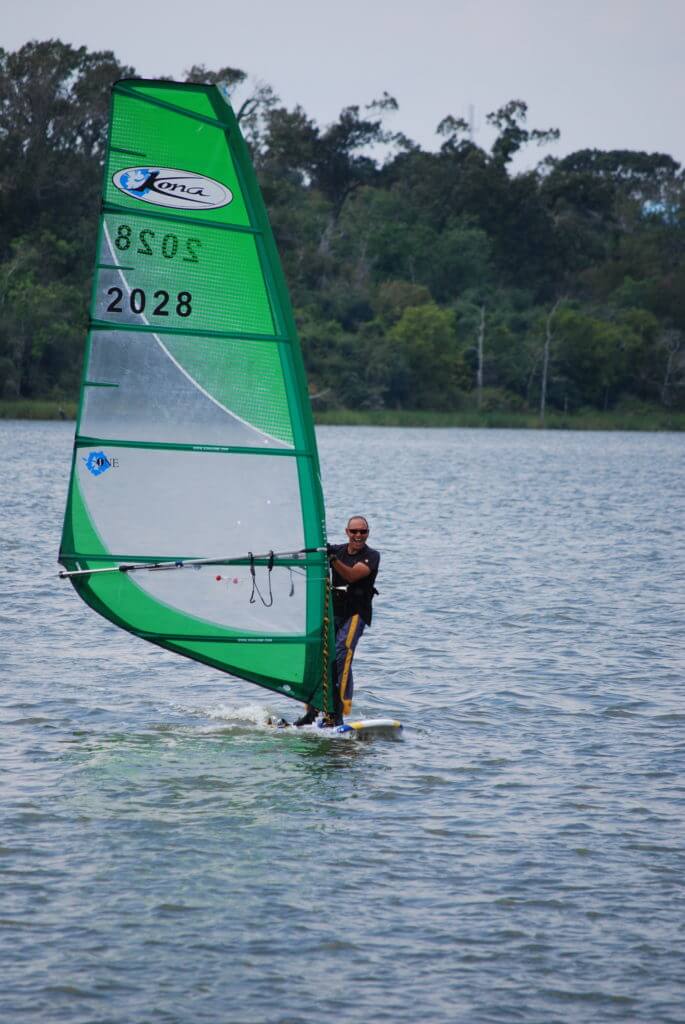Memorial Hermann cardiologist Konstantinos Charitakis, M.D., cycles his way to healthy living

NAME: Konstantinos Charitakis, M.D.
OCCUPATION: Interventional cardiologist at Memorial Hermann Hospital; assistant professor of cardiovascular medicine at McGovern Medical School at UTHealth
INTEREST: Cycling
As an interventional cardiologist, Konstantinos Charitakis, M.D., understands the importance of maintaining a healthy and active lifestyle. Whether he’s pedaling along the roads in Fulshear with former patients and his local cycling team or racing other enthusiasts online on his stationary bike at home in Montrose, Charitakis puts in 150 miles every week.
“It’s definitely a good way to improve and maintain cardiovascular health and I definitely recommend it to all my patients,” Charitakis said, adding that cycling is an easy way to get back in shape and is kinder to the knees and hips than running.
Charitakis was first introduced to cycling by a friend during his residency and fellowship training at New York-Presbyterian Hospital/Weill Cornell Medical Center. He quickly fell in love with the sport—not only because it’s such an effective form of exercise, but because of its team dynamic.
“It’s usually noncompetitive in the sense that it’s a big bunch of people going out all together. … We try going fast and help each other because we do form a peloton,” Charitakis said, explaining that a peloton is a group of cyclists who conserve energy and reduce drag by riding close together. “It is the sport that if one of us doesn’t do well, the team doesn’t do well, so we try to help each other.”
Charitakis was also drawn to cycling because it gives him an opportunity to enjoy the outdoors and soak up beautiful landscapes—especially when he’s riding through the picturesque countryside hills of Crete, the Greek island where he was born. After you cycle to the top of a hill, he said, you can take a break and enjoy the beautiful view.
“My dream would be for every place that I want to visit, to visit with the bike,” Charitakis said. “It’s not only what you see but where we stop—and we talk and we go into little cafes.”
The increasing popularity of online cycling communities, such as Strava and Peloton, makes the cardiologist’s commitment to his love for cycling easier. He often opts for an indoor ride on his stationary bike to escape unfavorable weather.
“People don’t have to go out and … face the rain, or the cold, or the heat here in Houston,” Charitakis said. “They’re able to cycle from home with good AC, a fan, and the online cycling community. They can cycle, compete and enjoy, as well.”
When Charitakis moved to Houston, he created an online cycling account under the username “GreekCowboy” an homage to his Greek heritage and his new home in Texas.
“Many times the people see you logging in, because it’s a live class, and they’re like ‘Hey, GreekCowboy!’” he said. “That’s my five seconds of fame in the online community.”
Although every exercise needs to be tailored to fit the specific needs and heart strength of the individual, Charitakis believes that it’s his job to lead by example and encourage his patients to embrace exercise.
“The fact that you may or may not have a serious heart problem does not mean that you’re done with physical activity,” Charitakis said. “Even 15 minutes in the morning, you’ll see that the more you do, the better you’re going to get. You’re going to see change in your body. You’re going to see changes in your heart health—and that, you’ll see at the end of the day—is going to make all the difference. It may or may not prolong your life, but it will definitely improve the quality of your life, and that’s as important.”
Charitakis has participated in several MS 150 events in New York and Houston, as well as an RBC GranFondo race—a long distance bike ride sponsored by the Canadian bank.
He is currently training to ride 120 miles in Colorado next year for the Triple Bypass Bicycle Ride, which is named for the three mountains through which the course travels: Juniper Pass, Loveland Pass and Vail Pass.
“It’s funny, as a cardiologist, that it’s named the Triple Bypass,” Charitakis said. “Hopefully, I won’t need one.”




